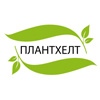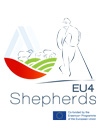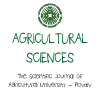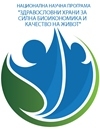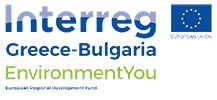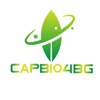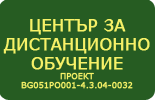Erasmus Policy Statement
Agricultural University of Plovdiv is a unique public educational institution in Bulgaria, specialized in agricultural and life sciences. The university was established 75 years ago in Plovdiv, one of the ancient European cities, which was the European Capital of Culture in 2019.
AU has been an active participant in the Erasmus programme ever since 1999. The 20-year experience of the university in Erasmus and Erasmus+ is a standard in the international cooperation of AU. Erasmus+ KA 1 ‘Learning Mobility’ with programme and partner countries is the most important international programme at the university, with the largest number of beneficiaries and of major importance for both students and staff. Preconditions for the participation of AU in the Erasmus+ programme: an adopted three-cycle system of education (Bachelor’s, Master’s and Doctoral programmes), ECTS is on place, a large number of disciplines taught in English and/or Russian, full recognition of Erasmus+ studies and traineeships; joint Master and Doctoral programmes developed; membership in international networks and associations; best results of institutional accreditation positioning AU in top three universities in Bulgaria. Internationalisation is the main goal of the university strategy aimed at raising the quality and modernisation of education and research. Erasmus+ programme contributes to the internationalisation and modernisation strategies through encouraging the international dimension of study and research activities. Individual mobility of students and staff is the engine for better international visibility of the university. The internationalisation strategy of AU follows the European Commission's modern aspects of higher education internationalisation, such as: offering innovative educational content, digital learning, a focus on excellence with a move from fragmentation to increasing coherence. The university adopted the objectives of the Education and Training strategic framework 2020. The major principles of the institutional internationalisation strategy are cooperation and interaction between different stakeholders from education, research and business, transparency of action, and defining measurable indicators of progress. Erasmus+ will support AU to contribute to the goals of a European Educational Area. AU intends to pursue the following policy objectives: - To increase quantity and quality of outgoing and incoming student and staff mobility; - Full automatic recognition of student and staff mobility results; - To improve the language proficiency of students and staff; - To raise social awareness and civic engagement of students; - To increase multicultural knowledge of students and staff; - To achieve sustainable employment of the graduates, based on sound theoretical knowledge and practical competencies and skills; - To foster the personal and professional development of the participants in the exchange programme; - To give opportunity for Erasmus+ learning mobility to all students and staff, irrespective of their socio-economic background, paying particular attention to the inclusion of those with fewer opportunities. - To promote civic engagement, active citizenship, European identity and cultural awareness amongst outgoing and incoming students; The University will strengthen partnerships with business and NGOs – agricultural farms, tourist enterprises, food processing companies, ecological and business organizations – for better practical training of students. Thanks to the Erasmus+ programme, the university students will enrich their scientific knowledge and engineering skills, digital and technology-based approaches, interpersonal skills, and the ability to adopt new competencies and entrepreneurship. Agricultural University has good traditions with student traineeship in enterprises. For the specific field of education – agriculture and other related areas like ecology, rural tourism, rural development, agribusiness, etc. – the traineeships are very important for achieving the study objectives. Moreover, the practical training and pre-diploma traineeship are compulsory part of the study programmes. Traineeship mobility will enrich the necessary skills and competencies of students to be more competitive in the national and European labour market. Doctoral mobility is of high importance as a way to prepare researchers for both educational and research organizations and industries. Erasmus+ staff mobility aims at increasing the qualification, competence and motivation of the teachers, researchers, and the non-teaching staff. The mobility will contribute to the introduction of innovative teaching methods; it will increase the quality of education, as well as the services offered to students and the human capital development. The University will broaden the geographical scope of partnerships and will strengthen cooperation with existing partners from programme and partner countries. The institution will develop cooperation with new partners from the regions of Western Balkans, Eastern Partnership countries, South Mediterranean countries, the Russian Federation, South Africa and the United States. When signing interinstitutional agreements, special attention is paid to the compatibility of academic profiles, similar educational and research aims, following a balanced partnership portfolio. AU will continue to promote the European Educational Area among the institutions from Partner countries. The University will continue to take advantage of the Erasmus+ opportunities offered by Key Action 2 "Cooperation among organizations and institutions" and Key Action 3 "Support to policy development and cooperation" to establish and/or strengthen partnership and involvement in educational projects aiming at designing joint and double Bachelor’s, Master’s and PhD degree programmes, courses and modules with strategic partners, as well as in research projects of great importance for the implementation of the internationalisation strategy of the university. The priority areas are transformation in the agricultural sector for the provision of human nutrition and the production of safe food; sustainable management of the natural resources; climate change mitigation potential of bioeconomy; transition to a low-carbon economy, etc. The inclusion of AU in European University Alliances in the field of agriculture and life sciences is a challenge for the optimization of the curricula and the administrative structure and for the future sustainable development of the university as a European higher education institution. We declare the programme's supported activities fully match the institutional priorities and will contribute to the university development as a unique national and European educational and research institution in the field of agriculture and life sciences, training skilled and competent graduates for the Bulgarian and European labour market. The Agricultural University draws strength from the rich traditions. Still, it looks to the future global problems to provide accurate decisions to the challenges of the 21st century in the field of agricultural and related science, economics and tourism for a better quality of life.
 - Събития по случай 80-я юбилей на АУ
- Събития по случай 80-я юбилей на АУ
